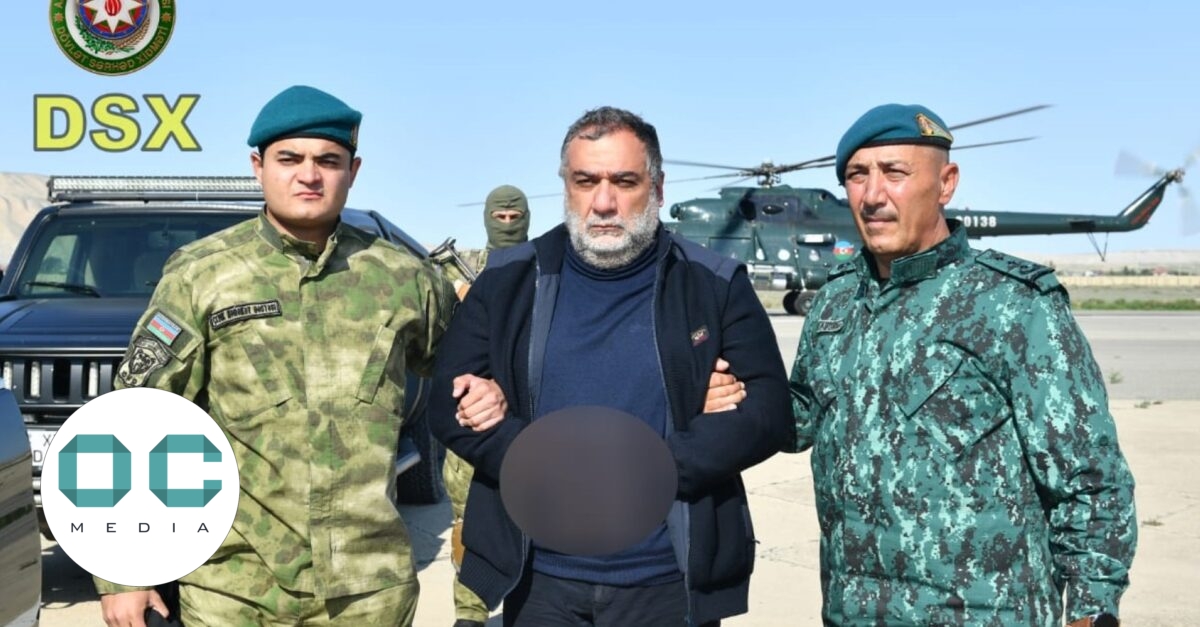
Azerbaijan has detained Nagorno-Karabakh’s former state minister, Ruben Vardanyan, as he attempted to cross the Lachin checkpoint into Armenia.
Vardanyan, a Russian-Armenian businessperson and billionaire, was detained on Wednesday, as announced by Azerbaijan’s State Border Service. The announcement stated that Vardanyan had illegally entered Azerbaijan, and cited his work as Nagorno-Karabakh’s state minister as factors in his arrest.
The Border Service stated that Vardanyan is currently in Baku, and is awaiting a decision by ‘the relevant state authorities’.
Vardanyan’s arrest was confirmed by his wife, Veronika Zonabend, via his Twitter account on Wednesday afternoon.
‘My husband, Ruben Vardanyan, the philanthropist, businessman, and former Minister of State of Artsakh (Nagorno-Karabakh) was arrested and detained by the Azerbaijani authorities at the border this morning as he tried to leave with thousands of Armenians’, wrote Zonabend.
Speaking to Russian newspaper RBC, Zonabend clarified that Vardanyan was detained while crossing the Hakari Bridge, where an Azerbaijani checkpoint has been located since April.
The Armenian government has reportedly applied to the European Court of Human Rights (ECHR), demanding that Baku provide information on Vardanyan’s location and condition.
Ruben Vardanyan was appointed Minister of State by Nagorno-Karabakh’s then-President Arayik Harutyunyan in November 2022, and given substantially wider powers than his predecessorw. While previous state ministers only coordinated the work of four ministries, Vardanyan oversaw all ministries.
His appointment proved controversial from the beginning, in part due to his business links in Russia. Vardanyan also gained attention and notoriety for his frequent live broadcasts from Nagorno-Karabakh during the first months of the blockade, and for repeated criticism of him by the Azerbaijani authorities.
In February, Vardanyan was dismissed from his post by Harutyunyan. Nagorno-Karabakh’s then-President stated that the decision was attributable to ‘strategic’ differences in his and Vardanyan’s approaches to internal and external issues, although some speculated that the move was also aimed at appeasing Azerbaijan.
Following his dismissal Vardanyan remained vocal in Nagorno-Karabakh’s politics, with Harutyunyan’s resignation in August coming soon after Vardanyan had demanded that he step down.
[Read more: Arayik Harutyunyan resigns as president of Nagorno-Karabakh]
Harutyunyan’s successor, Samvel Shahramanyan, was alleged by several political commentators to represent a political group consolidated by Vardanyan.
For ease of reading, we choose not to use qualifiers such as ‘de facto’, ‘unrecognised’, or ‘partially recognised’ when discussing institutions or political positions within Abkhazia, Nagorno-Karabakh, and South Ossetia. This does not imply a position on their status.
